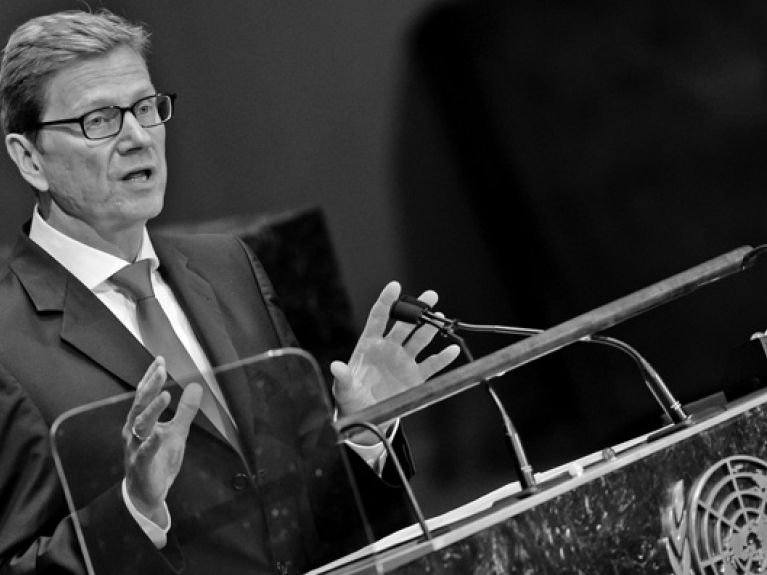On the death of Guido Westerwelle
From the 1908s onwards, the former German Federal Foreign Minister and Chairman of the FDP, the German Liberal Democrats, was one of the best known members of the German political world.

Berlin (dpa) – With a book he wrote on his illness (“Zwischen zwei Leben - Von Liebe, Tod und Zuversicht”), Guido Westerwelle touched many people’s hearts. But his hopes that he would one day recover were dashed. On Friday, the former Chairman of the FDP, the German Liberal Democratic Party, Federal Foreign Minister and Deputy Chancellor died at the age of 54 – a victim of acute myeloid leukaemia, a particularly vicious form of blood cancer.
The son of a lawyer in Bonn, Westerwelle was throughout his life one of those people who divided opinion: Admired, celebrated, scorned, hated. He first caught the eye in the early 1980s: When hundreds of thousands stood in Bonn’s Hofgarten to protest against rearmament, Westerwelle stood in their midst and distributed leaflets – in favour of it.
After the end of the Social Democrat/Liberal coalition in 1982 Westerwelle was among those who founded the new righter-wing liberal youth arm of the FDP, the Junge Liberalen. The following year he was elected its chair, an event which marked the beginning of a life devoted almost exclusively to politics. Essentially on the side he studied law, gained a doctorate from the Hagen Open University, and became an attorney.
At the age of 39 he was voted Chairman of the FDP and set out to transform the Liberals from being a small party that enabled another party to hold a majority in parliament into a “party for the entire people”. He had himself declared candidate for the office of Chancellor, travelled up and down the country in a caravan, dropped by “Big Brother”, where he stepped into the housing container, and painted a yellow “18” on the sole of his shoe – the percentage he wished to achieve in the general elections. Westerwelle was firmly in line with the zeitgeist and held the best speeches in parliament, but nevertheless the FDP remained only an opposition party.
At his third attempt, in 2009, he got the coalition he had so cherished, with the Christian Democrats; the FDP had achieved a sensational election result of 14.6 percent of the vote. Great were the promises that had been made, and just as great the expectations. But in his hour of triumph Westerwelle made one of his greatest mistakes: He opted not for the Ministry of Finance but for the Federal Foreign Ministry. Many refused to find his transformation into a diplomat credible. After 18 months his own party lost patience with him. Westerwelle had to step down as Chairman of the FDP and as Deputy Chancellor. He was forced to concentrate all his efforts henceforth on the Federal Foreign Ministry, where he increasingly gained much respect.
After the dramatic defeat in the general elections in 2013, which saw the FDP no longer returned to parliament, many former fellow foreign ministers sent him invitations for the “new period in his life”. Exactly six months after his last day as minister Westerwelle was diagnosed as having leukaemia. Westerwelle is survived by Michael Mronz, his partner to whom he was married for a good five years.

